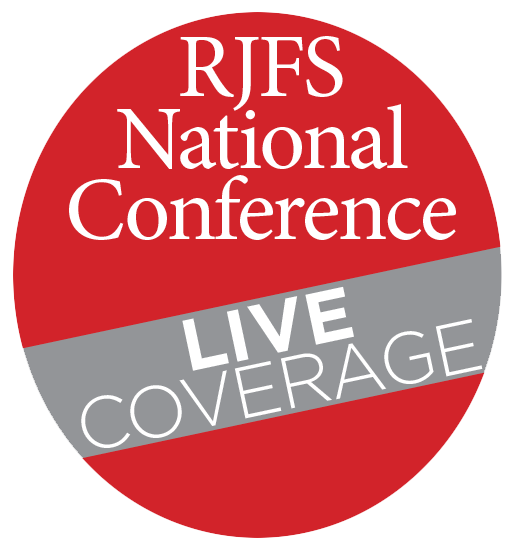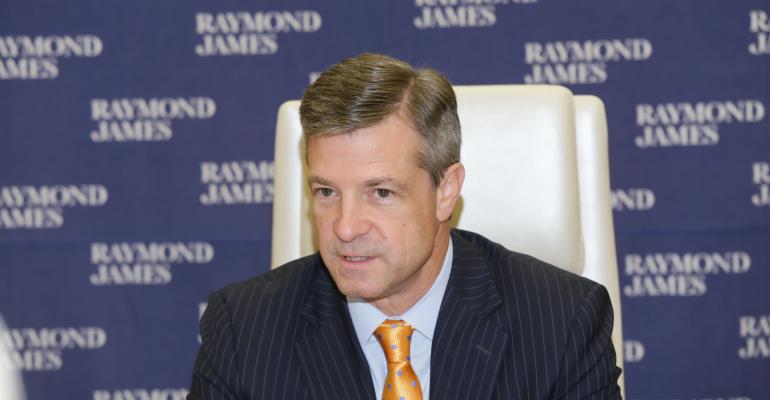The Department of Labor’s proposed fiduciary rule and anti-money laundering provisions are top-of-mind for Raymond James, Scott Curtis, president of Raymond James Financial Services, told advisors at the firm's national conference in Las Vegas on Tuesday.
While it’s too early to report specifically where Raymond James stands on the new proposal, Curtis said on the surface, the new DOL proposal appears to be significantly better than the one put forward in 2010.
“The improvement is that it appears they’ve stepped away from eliminating all conflicts of interests” Curtis said. “But there’s still some details we have to work through and understand what the expectations would be around supervision, compliance and making sure people adhere to the rule if nothing modified.”
The original proposal was seen as eliminating all conflicts of interests, thus prohibiting commissions, Curtis said. “So while there are prohibited transaction exemptions [in the new proposal], that’s what we’re really digging through now to understand what are those and are they workable?”
 Curtis also scoffed at the DOL’s stance that the original proposal did not eliminate commissions. “I don’t know how you can say ‘we’re going to eliminate all conflicts of interest—you can’t disclose them, that’s insufficient, but still say you can charge commissions,” Curtis said, adding that commissions vary based on size of investment and that’s clearly a conflict.
Curtis also scoffed at the DOL’s stance that the original proposal did not eliminate commissions. “I don’t know how you can say ‘we’re going to eliminate all conflicts of interest—you can’t disclose them, that’s insufficient, but still say you can charge commissions,” Curtis said, adding that commissions vary based on size of investment and that’s clearly a conflict.
And while there’s been no new rulemaking around anti-money laundering safeguards, Curtis said Raymond James is seeing that expectations have changed and regulators’ scrutiny around AML has increased significantly throughout the industry.
At Raymond James, Curtis said the firm is now requiring advisors to know the source of their clients’ assets.
“It won’t be enough to know that the client has $4 million, now the question is ‘OK, where did you get the money?’” Curtis said.
It’s a different approach for the firm and advisors will have to have different conversations with clients than they’ve than in the past, something Curtis said the firm will have to help advisors navigate.
“That is already how things operate in trust departments in many trust organizations and some other countries around the world. It hasn’t been the case in the U.S., but it’s going to become reality very quickly in the U.S.—that’s our expectation,” Curtis said.





